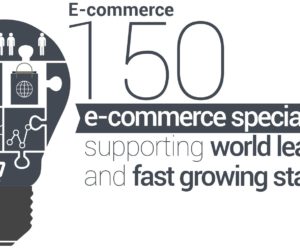How do you choose the best e-commerce platform to promote your product or service? In order to choose between e-commerce platforms like Magento, OpenCart, Drupal, etc., it is first necessary to identify the characteristics of your project as well as you and your customer’s needs. For example, If your needs are small and you don’t need many features then a solution like WooCommerce can do the job. Though if you have complex requirements and most of your sales are generated through e-commerce, then you will need a solid framework with a lot of features. For this situation, an e-commerce platform like Magento is a good choice. Budget, deadlines, and your technical know-how are also important factors to take into consideration when choosing a solution. Below I will compare a few of the more popular e-commerce platforms to help guide your choice.

Your business strategy, deadlines, budget, and IT knowledge all factor you need to consider when choosing the best e-commerce platform. If you would like to learn more, download our e-commerce ebook or watch our latest e-commerce webinar replay.
Magento: An Enterprise Level Solution
Magento is what can be called an enterprise level e-commerce solution. This is partially because it is a solution you choose when you have a lot of different types of products and you want to use a lot of features on your website but also because you need an experienced development team to make Magento work. This is not a solution to choose for someone who just wants to slap a quick shopping cart function onto their WordPress blog.It can be considered a generic platform that is customizable through the use of modules and plugins, of which thousands already exist and new ones can always be created. Even so, formatting Magento is not for the layman. Magento is a framework that can be manipulated through programming and for this it is necessary to use developers. While Mangento developers are easy to find and many modules already exist, the process of setting up your e-commerce store will end up being a bit costly, as it takes time to set it up exactly how you want it and you need a developer to help you administrate it even after it’s set up. Also, in regards to cost, if your organization changes its type of business it will take both time and money to modify Magento to reflect your change of focus.So overall it is a somewhat difficult and expensive solution (in addition to development costs the enterprise edition of Magento has a yearly fee) but it is often the preferred solution for big companies that do most of their sales online. Once it is set up, Magento is a solid and reliable base for e-commerce websites.
Drupal: A Content Based E-Commerce Platform
Drupal is an opensource solution with functionalities similar to content management systems, and has much more functionality in regards to content when compared to Magento. If you want your e-commerce website to have a lot of content such as articles, images, video, etc., then Drupal is a good choice. It is the e-commerce platform that marries content with e-commerce functionalities.However, it still shares some similarities with Magento. Creating a website with Drupal requires a development team if you want to set up something solid. It also has modules and plugins that already exist but they are less numerous than in Magento.Basically, Drupal can be thought of as a more complicated WordPress that has e-commerce features. It is more stable and secure than WordPress but it also requires more time and resources to set up and run.Both Magento and Drupal are used by large enterprises. When running a large project, which one you use depends on your business strategy. If you follow a heavy content based strategy then Drupal is likely to be the choice for you.
WooCommerce and OpenCart
WooCommerce and OpenCart are good e-commerce platforms for small scale operations. They are both user friendly and are possible to install and use either independently or with a small team.
WooCommerce
WooCommerce is a free plugin for WordPress that anyone can download and install to give their WordPress website e-commerce functionality. So it is super easy to get started and is as user friendly and intuitive as WordPress. It is similar to Drupal in that it is a good choice for projects where content is important. However, unlike Drupal and Magento, the quality of code the WooCommerce creates is not the best, however it is possible to modify it. Overall it does not have a real framework and there are less options for custom development compared to Magento and Drupal.However, as a simple and inexpensive option, WooCommerce is an interesting first option for trying to get involved in the e-commerce field. If a startup wants to throw up a digital storefront real quick and at low cost then they can download WooCommerce and plug it into their website and then work on building something more permanent later.
OpenCart
OpenCart is another free open source and user friendly e-commerce platform. It can take a small amount of programming knowledge to set up as OpenCart has a development framework that allows users to customize their store and there are also modules and plugins available though some come with a small fee. Once OpenCart is set up for your website, administration is intuitive and takes not special knowledge to run. Of course it has fewer options than Magento but it is also much easier to set up and manage.OpenCart is one step above WooCommerce in the quality and quantity of features but in its difficulty to set up. However, on the whole it is user friendly and is a good option for startups and medium sized firms whose e-commerce demands are not too heavy. It is also something that can be used as an intermediate step before moving into a more sophisticated e-commerce platform.
Choosing your E-Commerce Platform
There are plenty of other e-commerce platforms not mentioned in this article that are also good options. BigCommerce, Shopify, and others all have their merits and drawbacks. Once you identify your needs as well as your budget, deadlines, and technical capabilities you are ready to do find the e-commerce platform that you find most compatible.If you would like to learn more about this topic, watch this e-commerce webinar replay about choosing between a framework and a CMS or download the e-commerce presentation. On July 20th, 12pm NYC time, Andrei Sajin, e-commerce developer and Pentalog’s head of web apps shared his knowledge about e-commerce platforms and development. Take a look at our e-commerce offer if you need any help working on your own e-commerce project.Learn more: Read about what it takes to run a successful e-commerce project.

 (4 votes, average: 4.25 out of 5)
(4 votes, average: 4.25 out of 5)







